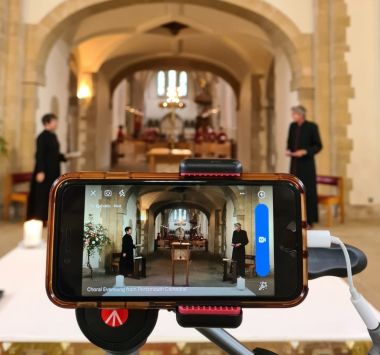Parish income 'badly affected' during pandemic

Church of England parishes have paid 10 per cent less to their dioceses in the past 12 months compared to pre-Covid levels, the House of Commons has heard.
Andrew Selous, the MP who answers questions about the established Church, told the House last week about the large fall in the voluntary payments local churches make in "parish share" towards clergy salaries, pensions, and housing.
Answering a question about the impact of the Covid-19 outbreak on trends in financial giving, the Second Church Estates Commissioner said parishes are giving less to their dioceses because their own income has plummeted.
"In 2020 the amount of parish share received by dioceses was 7% below 2019 levels, and in the year to date it is running at 10% less than in the same period of 2019. Parish income has also been badly affected by the loss of hall letting and other events income," he told MPs.
The Conservative MP for South West Bedfordshire was also asked how the CofE's payroll budget is split between frontline parish clergy, staff in diocesan offices, and the national institutions, such as the Church Commissioners and Central Services.
Mr Selous said:"The Church of England is not a single institution, so it does not have a single payroll budget. In 2019, £255 million was spent on stipends and pension contributions for ordained ministers in parishes and a further £124 million was spent on clergy housing and working costs, £65 million was spent on staff in dioceses and £30 million was spent on staff in the National Church Institutions."
Commenting on the growing CofE crisis, the Guardian newspaper asserted in an editorial last week that "the cash-strapped Anglican hierarchy must tread carefully as it rethinks the role of the traditional parish".
"In the context of a 40% decline in church attendance over the past 30 years, radical action seems unavoidable. Before the pandemic struck, around 5,000 parishes needed financial help from their diocese to meet the costs of ministry.
"Lincoln diocese has an annual £3m operating deficit and has said that after 2025 it will no longer be able to rely on historic assets to get by.
"On the current model, the old ideal of a priest for every parish no longer seems affordable," the paper said.
The Guardian editorial provoked several letters.
Priscilla Bench-Capon from West Kirby, Merseyside, thanked the paper for "highlighting the plight of CofE parishes".
"I am a trustee of my local parish church. Our congregation is largely elderly, and has to find £7,318 each month to pay the diocese, plus money for the maintenance of three beautiful listed buildings, complete with organs, bells and a tower clock, care of two churchyards, insurance, cleaning, a part-time administrator and more," she wrote.
She said her church wants to be "available and welcoming to anyone who turns to us, but it is a struggle".
She argued that "if people want church property in good condition, with professional clergy and open doors, and don't want to see more closures, they should think about helping us to pay the bills".











